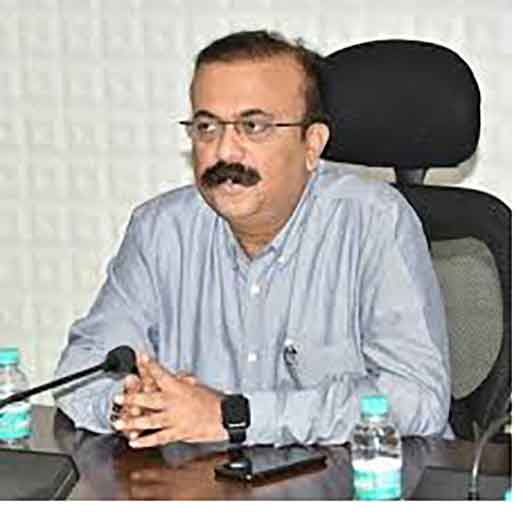|
|
|
You can get e-magazine links on WhatsApp. Click here
|
|
|
|
|
|
“We are in talks with Zomato and Swiggy to integrate ratings into their platforms”
|
|
Monday, 11 August, 2025, 08 : 00 AM [IST]
|
|
|
 As food safety becomes a national priority, Maharashtra's Food and Drug Administration (FDA) is stepping up its game with wide-ranging initiatives across religious places, educational campuses, online food delivery platforms, and drug retailing. In an exclusive interview with Abhitash Singh, Maharashtra FDA Commissioner Rajesh Narvekar sheds light on the department's latest programmes, their vision for 2025, and how they are ensuring "the Right to Safe Food" across the state. Excerpts: As food safety becomes a national priority, Maharashtra's Food and Drug Administration (FDA) is stepping up its game with wide-ranging initiatives across religious places, educational campuses, online food delivery platforms, and drug retailing. In an exclusive interview with Abhitash Singh, Maharashtra FDA Commissioner Rajesh Narvekar sheds light on the department's latest programmes, their vision for 2025, and how they are ensuring "the Right to Safe Food" across the state. Excerpts:
FDA Maharashtra’s major initiative is the E-Trade Campaign. Elaborate on its components, especially the involvement of temples and other places of worship.
Yes, under the E-Trade Campaign, we have launched the E-Trade Place of Worship programme, where we inspect and certify food hygiene and safety standards at religious establishments. So far, we have covered over 50 temples including Siddhivinayak, Swami Samarth Math in Dadar, and the Sai Mandir in Shirdi. At Shirdi, for instance, we looked at the preparation and distribution of laddoos and the food served in the mandala. Our audits focus on the cleanliness, quality of prasad, the water used, storage conditions, and whether ingredients like ghee are authentic and safe. We have also provided hygiene training to temple staff this includes how to maintain cleanliness and ensure safe distribution practices. So far, we have trained around 25,000 workers in various such establishments.
What is the procedure followed by FDA before certifying these religious places?
First, we conduct a thorough audit of the kitchen and food handling areas. We check what ingredients are used, their sourcing, storage methods, and how the food is cooked and served. If the place meets our standards, we provide certification, which is then displayed prominently for public reassurance. We have already covered Shirdi and will expand this to at least 100 temples across Maharashtra by January next year.
How are educational institutions and government establishments being brought into this food safety net?
That’s the E-Trade Campus initiative. It includes schools, colleges, hostels, jails, and even government office canteens. We recently certified the MLA hostel canteen after conducting detailed inspections. The same standards apply: food storage, handling, hygiene, and safety.
You mentioned earlier a hygiene rating system for hotels and food delivery platforms. Can you share more on that?
Yes, we have introduced a hygiene star-rating system 1 to 5 stars based on inspections. We are now in talks with online delivery platforms like Zomato and Swiggy to integrate our FDA star ratings into their platforms. This way, when a consumer is browsing for food online, they can see whether an outlet is FDA certified and what hygiene rating it has. If implemented, it will empower consumers to make informed choices and also push smaller or unregistered outlets to meet safety standards. It's part of our larger mission to enhance trust in the e-commerce food sector.
What about training of food business operators (FBOs)? There’s a buzz around FoSTaC training.
Absolutely. FoSTaC, which stands for Food Safety Training and Certification, is an initiative of FSSAI and implemented by us aggressively in Maharashtra. In just the last 100 days, we have trained over 36,000 individuals and our goal for this year is to train over 1,00,000 people involved in food handling, cooking, serving, and storage. This includes small dhaba owners, canteen staff, hotel worker basically anyone who touches food. Training is conducted both online and offline, and we are encouraging CSR support from big operators to fund training for small players who can't afford it. We also work with AHAAR and other industry bodies to reach more people.
Maharashtra being a big and densely populated state, how are you tackling unlicensed food operators?
That’s a constant challenge. While many operators are licensed, a significant number still operate without proper registration. Our food safety officers are mapping areas and identifying such units. Awareness is also a key component, many simply don’t know they need to be licensed. We aim to bring these unlicensed FBOs under regulation through outreach and inspections.
There were recent reports about milk adulteration. What measures are being taken on that front?
Yes, we are deploying 50 portable milk testing scanners across Maharashtra by August 2025. These devices can instantly detect adulteration in milk. This is part of our drive to improve on-the-spot testing and transparency in food quality.
What is the broader vision of FDA Maharashtra under your leadership for 2025?
Our goal is simple but ambitious—ensuring that every citizen has access to safe food and medicines. Be it street food, temple prasad, hostel meals, or food ordered online, the consumer must feel safe. Through training, certification, tech integration, and awareness campaigns, we are empowering both providers and consumers. We are not just enforcers—we are facilitators. And through initiatives like FoSTaC, E-Trade Place of Worship, E-Trade Campus, hygiene rating, and e-commerce engagement, we are building a culture of food safety in Maharashtra.
|
|
|
|
|
|
|
|
|
|